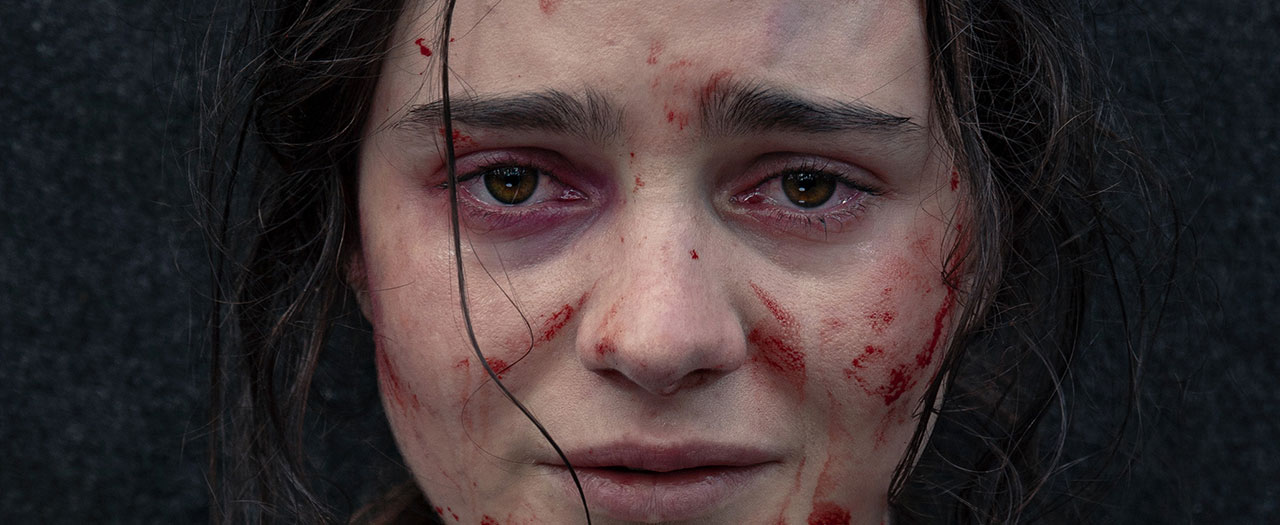The Nightingale [Feature]
A dual award winner at the 2018 Venice Film Festival, Jennifer Kent’s follow-up to The Babadook pulls no punches in its brutal depiction of life in colonial Tasmania – especially for women and Indigenous Australians.
After being deported to Van Diemen’s Land for thievery, Irish convict woman Clare finds herself living a nightmare under the rule of a sadistic lieutenant. Sometimes he forces Clare to sing for his troops, who dub her their little Nightingale; more often he forces himself on her and there’s little she or her husband can do to stop him … until Clare reaches breaking point and sets her mind to revenge, with a little help from a local Aboriginal tracker, Billy.
With extraordinary performances from Irish actor Aisling Franciosi (Lyanna Stark in Game in Thrones) and Elcho Island’s Baykali Ganambarr (who won Venice’s Marcello Mastroianni Award for Best Emerging Actor) alongside Sam Clafin and Damon Herriman, The Nightingale is an essential, if unsettling, cinematic experience. Jennifer Kent was the only woman director at Venice, where The Nightingale won a Special Jury Prize in addition to Ganambarr’s award. But the accolades were almost overshadowed by the actions of a male critic who yelled misogynistic obscenities at the screen following the film’s premiere. The reaction is a pointed statement about how The Nightingale’s unsparing vision of male, white violence makes some viewers uncomfortable while also being an extraordinary, if unintentional, declaration of the film’s raison d’être.
“The Nightingale is not a film that has been made so that people can feel comfortable … [but] the intense feelings of distaste and horror that Kent so skilfully builds is absolutely the point.” – Screen Anarchy
Contains high-impact sexual violence and depictions of violence against children
The Sunday 18 August session is an encore screening for the winner of The Age Critics' Award for Best Australian feature film shown at MIFF2019.
